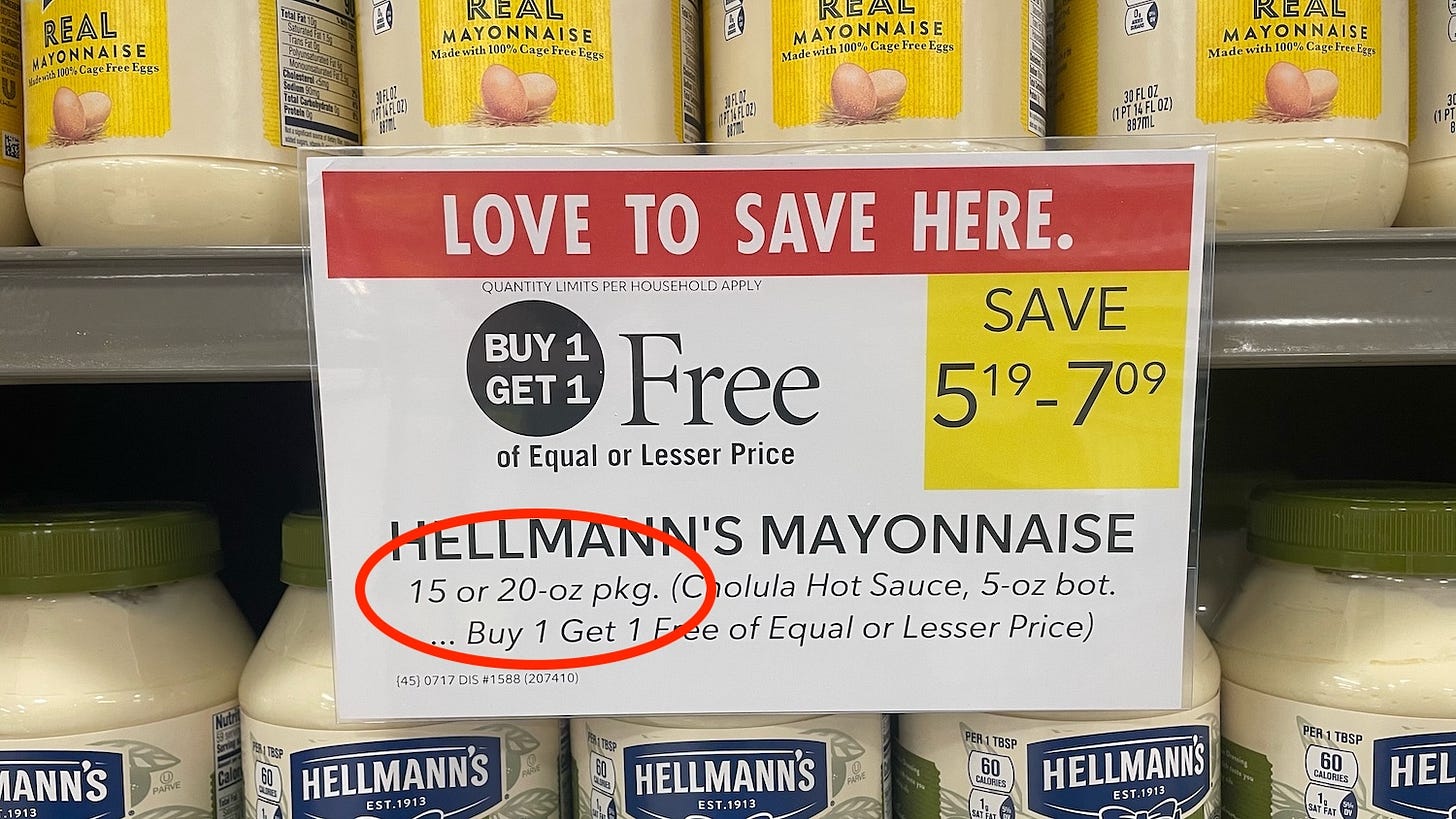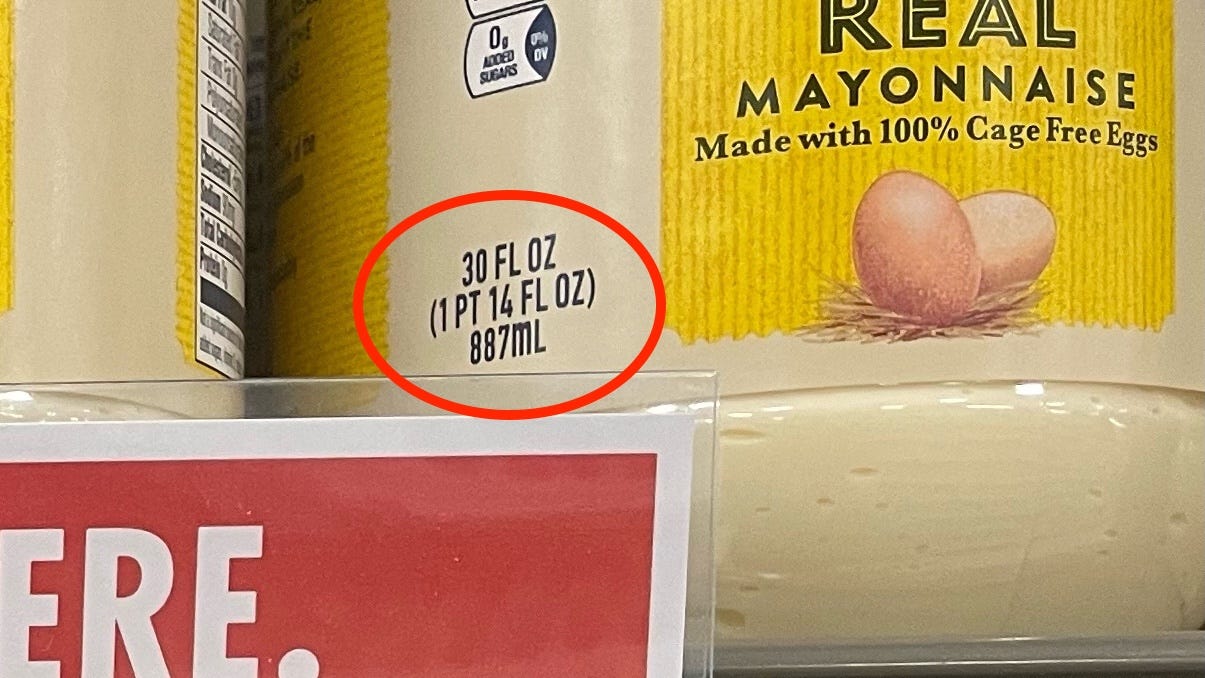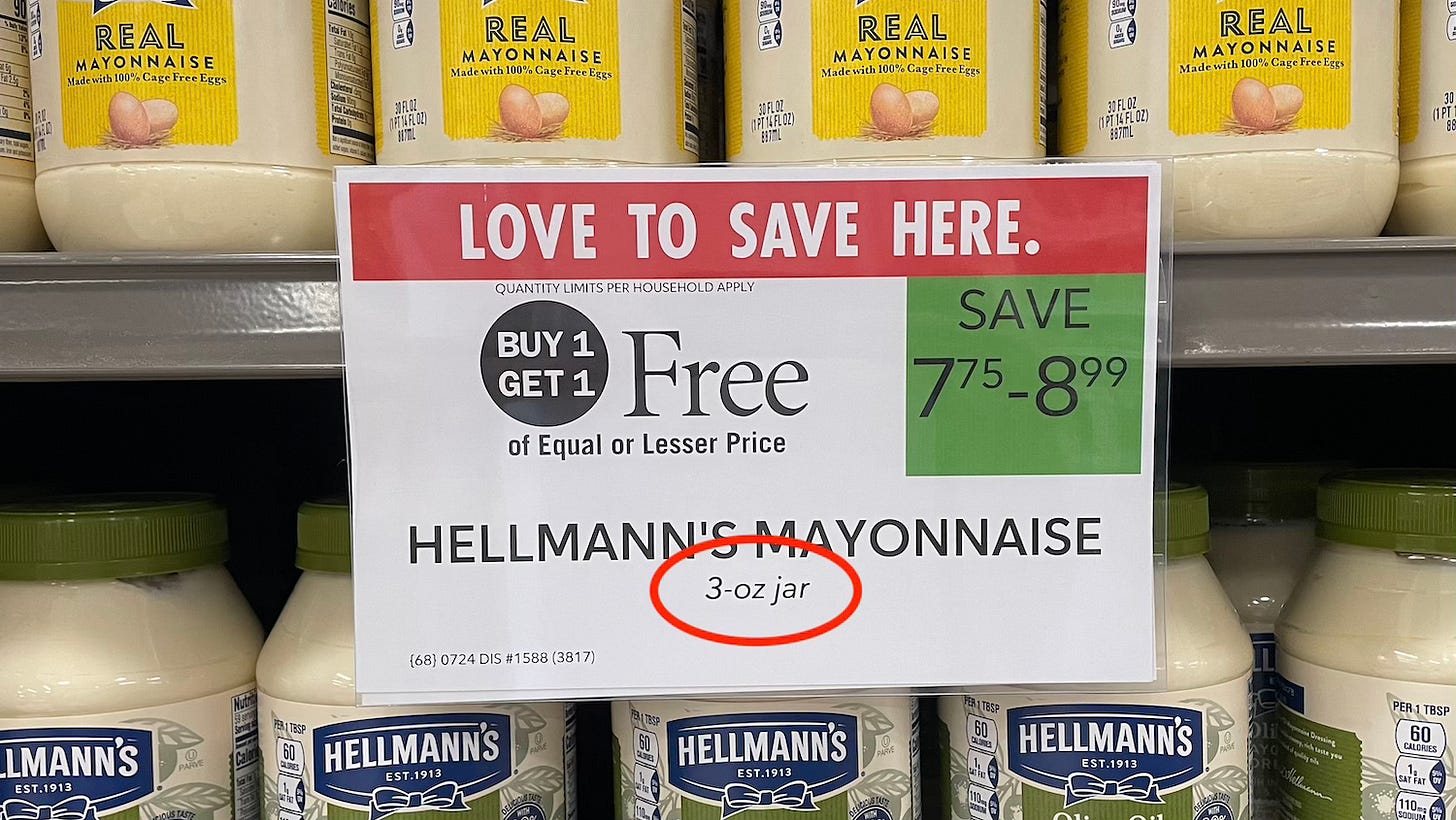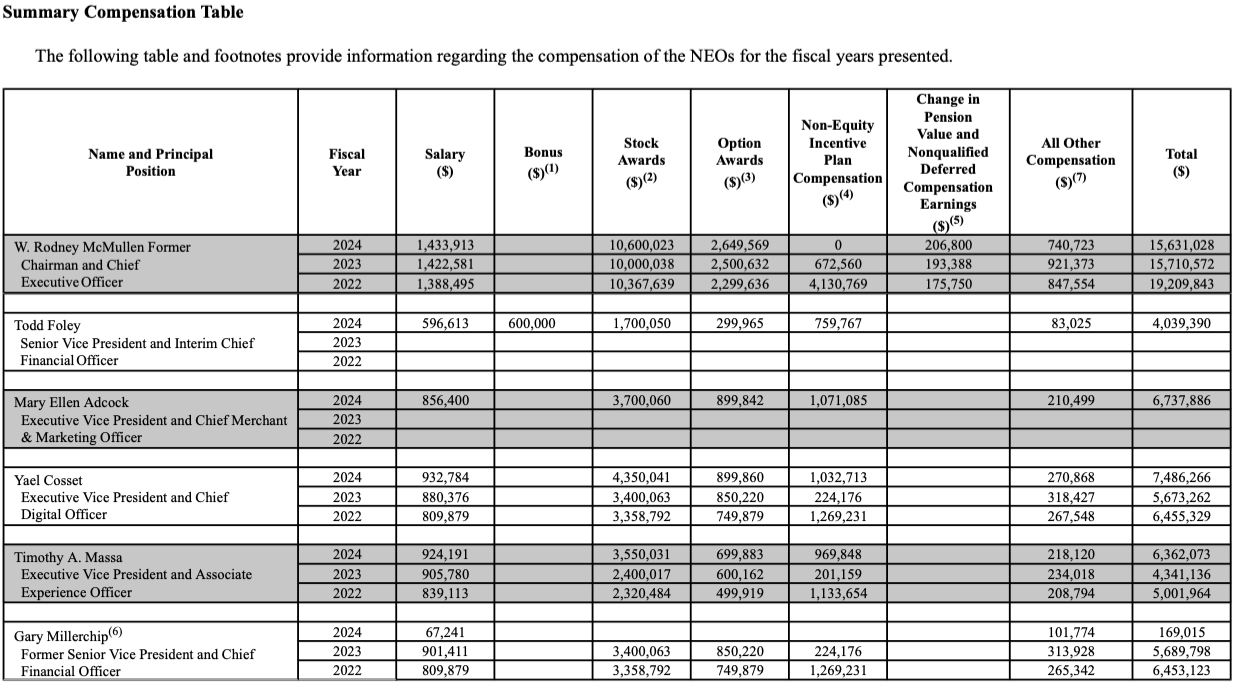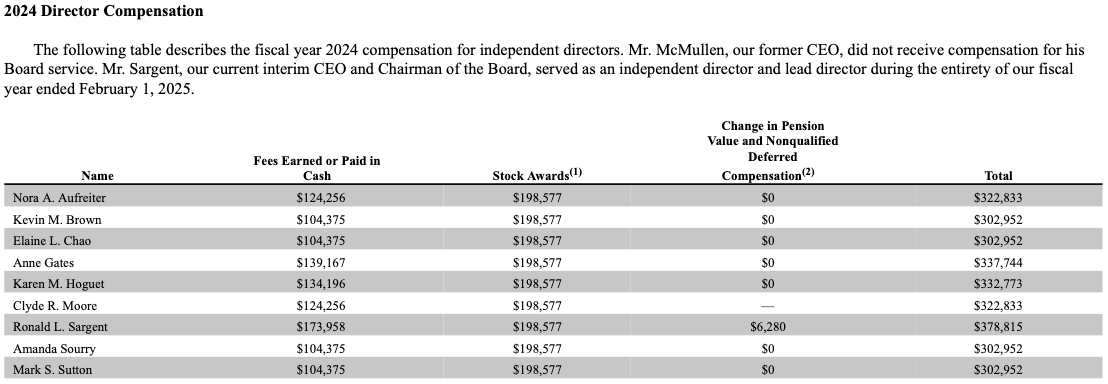#3•the value of attention, #4•attentive money
Don't miss the value of being attentive with everything. It's money.
These are part of The Grocery Files—shopping tips to help you save money and enjoy the process more—life, too. Each idea is my attempt to throw a little grocery love into your life. Get the background, more explanation, and a few videos.
(Read Files #1 and #2 or Files #5 - #7.)
File #3: Pay attention.
Please don’t dismiss this point as obvious.
Every Grocery File begins with attention—in the stores and at home.
In the store(s), you’ll pay attention to pricing, signs, patterns, and you. At home, you’ll pay attention to what you have, what you use (regularly and not), the pace of that use, and you.
With practice comes awareness—noticing. And the more you practice, the better you’ll get at noticing even more. And with awareness comes opportunity—and grocery joy.
Grocery joy = saving money + having a better time doing it + enjoying your bounty.
Here’s a quick example of the importance of attention in the store. We’ll go deeper with specifics of the example in a future file.
Initially, I was excited to see this sign—a BOGO (buy one, get one free). Mayo was on my list, and where I shop (Richmond, Virginia), we can buy just one and get it for half price. (That’s not the same everywhere. More in another file soon.)
Thing is, the sign said it was for 15 or 20-ounce jars, not for the 30-ounce jars behind it.
While I’ve caught things like this too many times, I’m still not cynical enough to feel it’s on purpose. Thousands of products are shelved and signed by many human beings. Mistakes happen.1
Fortunately, I noticed it before noticing it at checkout or when I got home. I asked someone to help me understand if I was missing something. When they realized their mistake, they gave me The Publix Promise—
Our Publix Promise guarantees that if during checkout, the scanned price of an item (excluding alcohol and tobacco products) exceeds the shelf price or advertised price, we will give the customer one of that item free. We will charge the lower price for the remaining items.
Nice of them. We’ll come back to store policies in a future file.
The point of this file is to lay the groundwork for everything else here. If I were a big dog with a lot of people who cared about what I say, I’d have made it File #1 because of its primary importance. But I am not a big dog. I’m maybe a Yorkie Poo.
This file is here to encourage you to be as present as possible while shopping and consuming, so you save more money and enjoy the experience of both more.
So tasty.
File #4: Be attentive with your money.
Minimize mindless spending.
Money in your pocket is better than money in the grocery store’s pocket.2 In fact, money in your pocket is better than it being anyone else’s pocket (other than maybe family or someone who needs help or a favor).
I’m not saying we shouldn’t pay for things. We all deserve to be paid for our work. I’m saying if we pay attention in the grocery store and to our consumption habits at home, we can save more money and better enjoy that savings in other places. Or, we can enjoy that money in the distant future because we invested it well.
I’m not your expert on investing advice, but if you look at your grocery store savings as an investment, you’ll be blown away by the return. Save 20% on some cheddar cheese you’d normally buy and eat, and you just slaughtered the return of most stock index funds. It’s a beautiful and instant return as long as it’s something you’d normally buy and eat. We’ll come back to the “as you’d normally buy and eat” thing later. It’s a little scary.3
What I’m recommending here is to manage your grocery shopping efforts as part of your overall money management strategy. Work it and practice it with the same professionalism as grocery stores do in their attempt to sell you more and make their profits. Where you can, put those nickels, dimes, and dollars they’re chasing into your pocket. It’s fun.
I hope I’m catching some of you at the beginning of your grocery shopping career. How wonderful it would be if you could save and make more money than I did before I fell in love with all this.
More grocery files to come, but you can always check the site on your own for new things if I miss you.
(Read Files #1 and #2 or Files #5 - #7.)
Please note: The Grocery files might not be worth your time if—
You don’t need or want to save money.
You dislike grocery shopping as much as some people dislike visiting the dentist.
You don’t enjoy the hunt for good deals.
It’s not exciting to appreciate the abundant options and occasional olfactory or visual joy of a grocery store.
The first point isn’t sarcasm. If you earn more with your time than it costs to have someone shop for you—and you can monetize that time—attention in a grocery store isn’t the best use of life unless you enjoy it.
Also, with all of this, do what makes you happy. These are things I try to do.
A guarantee—
If you don’t save more money as a result of reading The Grocery Files, I’ll compensate you for the time you’ve spent here. Please understand, there won’t be any cash, but on your deathbed, you’ll regain total consciousness. So, you’ll have that going for you😉4
Please email me with edits, thoughts, comments, or suggestions (or put them here in the comments). Please don’t be shy or worry about my feelings. Quick, blunt, and maybe interesting or helpful5 is always welcome.
All those nickels and dimes add up to quite a bit for the company. But the people doing the tough work in the stores aren’t getting much of it in comparison to the CEOs and other top people.
One example among many—Kroger’s top 5 people are all annually compensated in the millions, with the CEO’s total in FY 2024 hitting over $15 million.
Each independent board member also picked up over $300,000 in compensation for their part-time oversight work.
We pay for this.
It has to do with human behavior and the tendency to consume more when one buys in bulk or has extra on hand. I’ll address it in a later file, but if you want to look things up now, the terms are: (1) Stockpiling Consumption Effect, (2) Inventory-Driven Consumption, (3) Abundance Effect, (4) Unit Bias.
One of those old movie clips that found a permanent home in my brain very early—
“Maybe interesting or helpful” is meant to free you of concern.
I’d rather you risk sharing something with me than being concerned it might not land well. If your thought implies I’m stupid or an asshole, you might be right. If so, I’d like to try to fix it.

